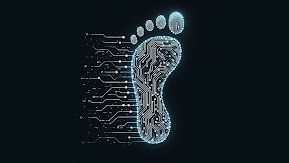Social media can serve many different purposes. For some, it's an outlet, a way to make friends or escape reality. For others, it can be toxic, where comparison leads to jealousy and self-doubt. I’ve been between these extremes at different times, significantly as technology has evolved. It’s a paradox: on one hand, technology is essential to my daily life, but on the other, it can create frustration and loneliness.
My Relationship with Technology
Technology has been a significant part of my life, as it has for most people in my generation. We grew up with it, and as technology advanced, so did my dependence on it. I remember teaching my mom how to use an essential phone, and now I help her navigate newer devices. Over time, my relationship with technology has shifted from relying on it for entertainment during isolated stretches (like during the pandemic) to finding a healthier, more balanced approach.
The COVID-19 pandemic was a turning point. With everything locked down, my phone became my window to the world—whether for socializing, work, or just passing the time.
According to Pew Research, "The vast majority of adults (90%) say the internet has been at least important to them personally during the pandemic, and 58% say it has been essential."
I can relate to that. However, the pandemic also led to an unhealthy dependence on screens, where I often found myself mindlessly scrolling for hours. As I’ve become busier, my screen time has dropped from eight hours to a more manageable four hours daily. It's a small victory, but it has made a positive impact on my mental health.
My Digital Footprint
I've accumulated a significant digital footprint because I’ve used technology for so long. Over the years, I’ve had multiple accounts on platforms like YouTube, Instagram, and TikTok. Some remain active, while others are remnants of past hobbies or phases. During the pandemic, I even made a few TikTok videos. Looking back, they were impulsive and silly—not something I would share now. Knowing those posts exist, even if they’re set to private, is strange. Our digital footprints are like shadows—easy to forget but never entirely gone. Over time, I’ve become more mindful of what I share online. Even though we can delete things, the truth is: "Whatever happens on the internet stays on the internet."
The Role of Technology in My Life
There’s no question that technology dominates our world. We use it to call, find directions, and watch TV shows. It’s become indispensable. The convenience and accessibility it offers can be life-changing. For example, technology allowed people to work, learn, and stay connected during the pandemic. As noted in the article "Technology makes life easier," even rural areas have gained access to the global community thanks to advances in internet connectivity. In a world increasingly shaped by technology, it’s hard to imagine life without it.
But technology isn’t perfect. While it’s incredibly helpful, it also has downsides. The same constant connectivity that makes it convenient can lead to stress, isolation, and feelings of FOMO (fear of missing out). Reflecting on this, I’ve realized that the balance lies between the optimistic view of technology as a connector and the darker side, like loneliness or constant comparison.
The Dark Side of Technology
Looking back at the short videos we discussed in class, the one about loneliness and FOMO resonates with me more. While technology can connect us in once-impossible ways, it can also increase feelings of isolation. Social media often presents idealized versions of reality, which can leave us feeling disconnected or inadequate in comparison. The optimistic view—that technology enables greater connection—has some truth but misses the opposing side. There’s a need to balance the benefits of technology with an awareness of how it can fuel unhealthy emotions and comparisons.
The Future of Technology
Looking forward, I think issues like artificial intelligence, online privacy, and censorship will continue to shape our world. AI can potentially improve industries and lives but raises concerns about job displacement and ethics. Online privacy is another major issue. Data security will become increasingly important as we share more of our lives online. Online censorship, particularly regarding free speech, is also a pressing issue that will require careful attention from governments and tech companies. Ultimately, it’s up to us as users to stay informed and advocate for ethical use of technology while also learning to set boundaries in our online engagement.
Conclusion
In conclusion, technology is a crucial part of our lives, but finding balance is key. We need to embrace its benefits while managing its potential for harm. Whether it’s reducing screen time or being more mindful of what we share online, we can take steps to make technology work for us, not the other way around.
————————————————————————————————————————
Cites
https://www.pewresearch.org/internet/2021/09/01/the-internet-and-the-pandemic/
https://www.smsfoundation.org/technology-makes-life-easier/
https://www.imf.org/external/pubs/ft/fandd/2016/09/wellisz.htm
https://www.uagrantham.edu/blog/technology-the-good-the-bad-the-ugly/






No comments:
Post a Comment